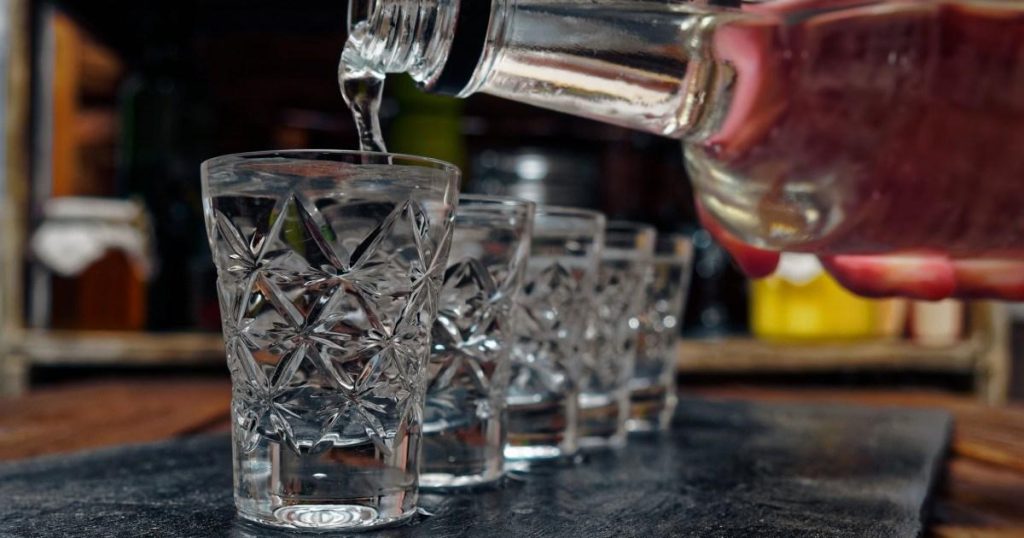The rising tide of counterfeit alcohol poisoning in Turkey has become a pressing public health crisis, claiming dozens of lives and jeopardizing the well-being of many more. In a recent incident, moonshine laced with methanol, a highly toxic substance, claimed the lives of 23 individuals and left scores hospitalized in Istanbul. This tragic event underscores the pervasive dangers of illicit alcohol production and distribution, particularly in urban centers like Istanbul. The victims included both Turkish citizens and foreign nationals, highlighting the indiscriminate nature of this threat. The widespread availability of counterfeit alcohol reflects a complex interplay of economic and regulatory factors that have created a fertile ground for this dangerous black market to thrive.
Methanol, often mistaken for its chemical cousin ethanol, the alcohol found in alcoholic beverages, poses a severe threat to human health. Its chemical structure, though similar to ethanol, renders it highly toxic upon ingestion. Methanol’s effects are insidious, initially manifesting as drowsiness, confusion, headaches, dizziness, and impaired muscle coordination (ataxia). If left untreated, methanol poisoning can rapidly progress to more severe symptoms, including blindness, organ failure, and even death. The insidious nature of methanol poisoning makes it particularly dangerous, as early symptoms can often be dismissed as mere intoxication, delaying crucial medical intervention. The tragic consequences of methanol poisoning underscore the importance of public awareness campaigns to educate individuals about the risks associated with consuming alcohol from untrusted sources.
The prevalence of methanol-tainted alcohol in Turkey has reached alarming proportions. Official figures reveal a grim toll, with 110 individuals falling ill and 48 tragically losing their lives in 2024 due to the consumption of contaminated alcohol in Istanbul alone. These numbers likely represent only the tip of the iceberg, as many cases of methanol poisoning may go unreported or misdiagnosed. The underlying causes of this crisis are multifaceted, stemming from a combination of increasing alcohol prices, inadequate regulation, and a thriving black market for counterfeit beverages. The economic hardship faced by many, coupled with the high cost of legally produced alcohol, creates a desperate demand for cheaper alternatives, making vulnerable individuals easy prey for unscrupulous producers and distributors of illicit alcohol.
The production and distribution of counterfeit alcohol thrive in an environment where regulations are weak or poorly enforced. Unscrupulous individuals exploit these loopholes, prioritizing profit over public safety. Methanol, being significantly cheaper than ethanol, is often substituted in the production of counterfeit alcohol, dramatically increasing the profit margins for these illicit operations. Raki, a popular anise-flavored Turkish liquor, has become a prime target for counterfeiters. Its rising price in legitimate markets has made it an attractive commodity for illicit producers seeking to capitalize on the demand for cheaper alternatives. This practice poses a grave danger to consumers who, unknowingly, purchase and consume these potentially lethal products.
Turkish authorities have recognized the severity of this crisis and have stepped up efforts to combat the production and distribution of counterfeit alcohol. Increased inspections and raids have resulted in the seizure of nearly 30 tonnes of counterfeit alcohol and the closure of numerous illicit businesses in recent weeks. While these efforts are commendable, they represent only a first step towards addressing the root causes of this problem. A comprehensive approach is required, encompassing stricter enforcement of existing regulations, harsher penalties for those involved in the production and distribution of counterfeit alcohol, and public awareness campaigns to educate consumers about the risks associated with consuming alcohol from untrusted sources.
Beyond law enforcement measures, addressing the underlying socioeconomic factors that contribute to the demand for counterfeit alcohol is crucial. Initiatives aimed at reducing poverty and improving access to affordable, legally produced alcohol can help mitigate the allure of the black market. Furthermore, empowering consumers with the knowledge and tools to identify counterfeit products can play a significant role in reducing the incidence of methanol poisoning. This can be achieved through public awareness campaigns that highlight the telltale signs of counterfeit alcohol and encourage individuals to report suspicious products to the authorities. Only a multi-faceted approach that addresses both the supply and demand sides of this crisis can effectively stem the tide of counterfeit alcohol poisoning and protect the health and well-being of the population.











